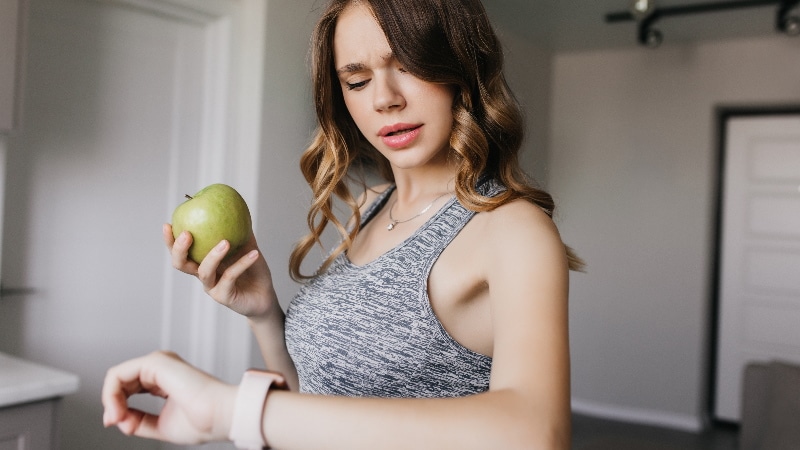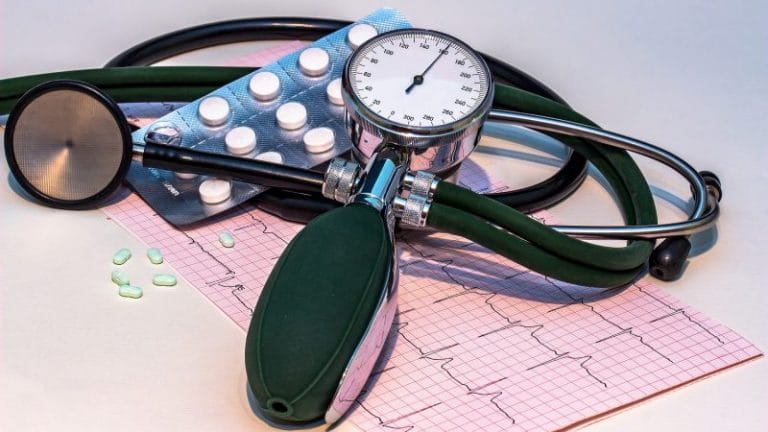When Is the Best Time to Weigh Yourself?

Deciding to lose weight and start a diet is one of the toughest decisions people struggling with weight have to make. Facing the scale can be particularly challenging.
According to some statistics, checking your progress by weighing yourself is vital for losing weight just as much as exercising and following a healthy eating plan.
If you want to know how often to weigh yourself, we have an answer, so read on!
When Is the Best Time to Weigh Yourself?
How much your weight fluctuates during a day is affected by many factors, including how much you exercise, what you eat, and how much water you drink. This is why you will get the most accurate results if you weigh yourself first thing in the morning.
The morning weight won’t be affected by what you’ve eaten or haven’t entirely processed yet, since this time of the day usually marks the end of the longest period in which you haven’t had any food or done strenuous exercise. Before weighing, you should empty your bladder to eliminate excess water from your organism.
The evening is possibly the worst time to weigh yourself since your weight could shift quite a lot from morning to night. Due to the foods and drinks you have taken during the day, your weight at night will probably be higher, while it will also be inconsistent, especially if the size and the type of meals differ every day.
This does not mean your weight is the highest at night, though. For example, weighing yourself after drinking water or any other drink or eating a large meal will make you weigh more because you are also weighing the food and drink you’ve just taken in.
Other Things That Can Affect Your Weight
If your scale doesn’t show the desired numbers, don’t jump to conclusions too soon, as many factors can influence the numbers other than body fat. Your weight can go up and down due to several reasons:
- Water weight gain or alcohol consumption
- Caffeine consumption
- Dehydration
- Exercise
- High concentration of salt
- What you consumed the night before
If having to weigh yourself everyday stresses you, you may also consider taking measurements of different areas of your body and tracking those changes. Sometimes the scale simply does not paint the right picture.
Best Time to Weigh Yourself When Intermittent Fasting
The answer is pretty much the same as the one to the question of when is the best time to weigh yourself since the type of weight loss program you’re on doesn’t affect things much. The most important thing is to weigh yourself under the same conditions and preferably in the morning.
Even if you have only one meal during the day, that can significantly affect your body weight.
When Is the Best Time to Weigh Yourself After Your Period?
The menstrual period is not the best time for a woman to weigh herself since chances are the results will be higher than her actual weight. Before the menstrual cycle, it’s completely normal for women to gain around 3–5 lbs because of water retention in the body.
So, when is the best time for a woman to weigh herself?
The answer is a week following your period since the fluctuating hormones and water retention will start to improve once the bleeding occurs, and you will lose that weight in seven days from the beginning of the period.
How to Accurately Weigh Yourself
If you aspire to get the most accurate readings on the scale and find out how to weigh yourself properly, you need to follow several steps:
- Before weighing, you should use the bathroom.
- In order to get an accurate comparison, try to weigh yourself at the same time of the day.
- Should you weigh yourself with clothes on? You should wear as little clothing as possible, while, if you decide to weigh yourself every day, you should try to wear the same clothing every time.
- Take off your shoes and stand still on the scale, distributing your weight evenly on both feet.
- Your scale should be placed on a hard, flat surface to get the correct results.
According to some statistics, digital scales are more accurate than the old analog ones. However, before buying one, you must decide what you need to measure besides your weight since many also offer several other options, like providing BMI readings.
How Often Should You Weigh Yourself
While numerous people know how to benefit from self-weighing, many believe daily weigh-ins lead to unhealthy behaviors, such as disordered eating and skipping meals, in order to see the scale numbers change.
However, according to research, if you weigh yourself regularly, you will have more chances of being successful in losing weight and keeping the desired weight for a long time. Regular weighing can help you see what changes you can incorporate to make your diet even more successful.
By weighing yourself every day, you will not only track progress, but you will also motivate yourself by the numbers and continue losing weight or maintaining the desired one.
If weekly weigh-in is your choice, you should do it on the same day, and as per some research, the best day for that is Wednesday.
Conclusion
The scale can be challenging to navigate, but if you decide to finally start losing that weight, our guide reveals some key things to have in mind.
Morning is the best time to weigh yourself for the most accurate results, and weighing yourself regularly is an essential factor for success.
FAQ
What time of day is your true weight?
While being consistent with your weighing is essential, choosing the exact same time each day for weighing is also crucial. Since the weight can fluctuate during the day, depending on your food and drink intake, the best time for weighing is in the morning, after going to the bathroom.
How much can your weight fluctuate in a day?
On average, one’s weight can fluctuate up to 6 lbs a day, so it’s essential to pay attention to what you eat and drink and when to weigh yourself.
How often should you weigh yourself when dieting?
According to a study, people who weighed themselves each day successfully lost weight. However, while many researchers suggest that weighing yourself frequently is good for weight loss, you must be careful not to form an unhealthy relationship with the scale. You might start obsessing about your weight, which may affect your mental health.






